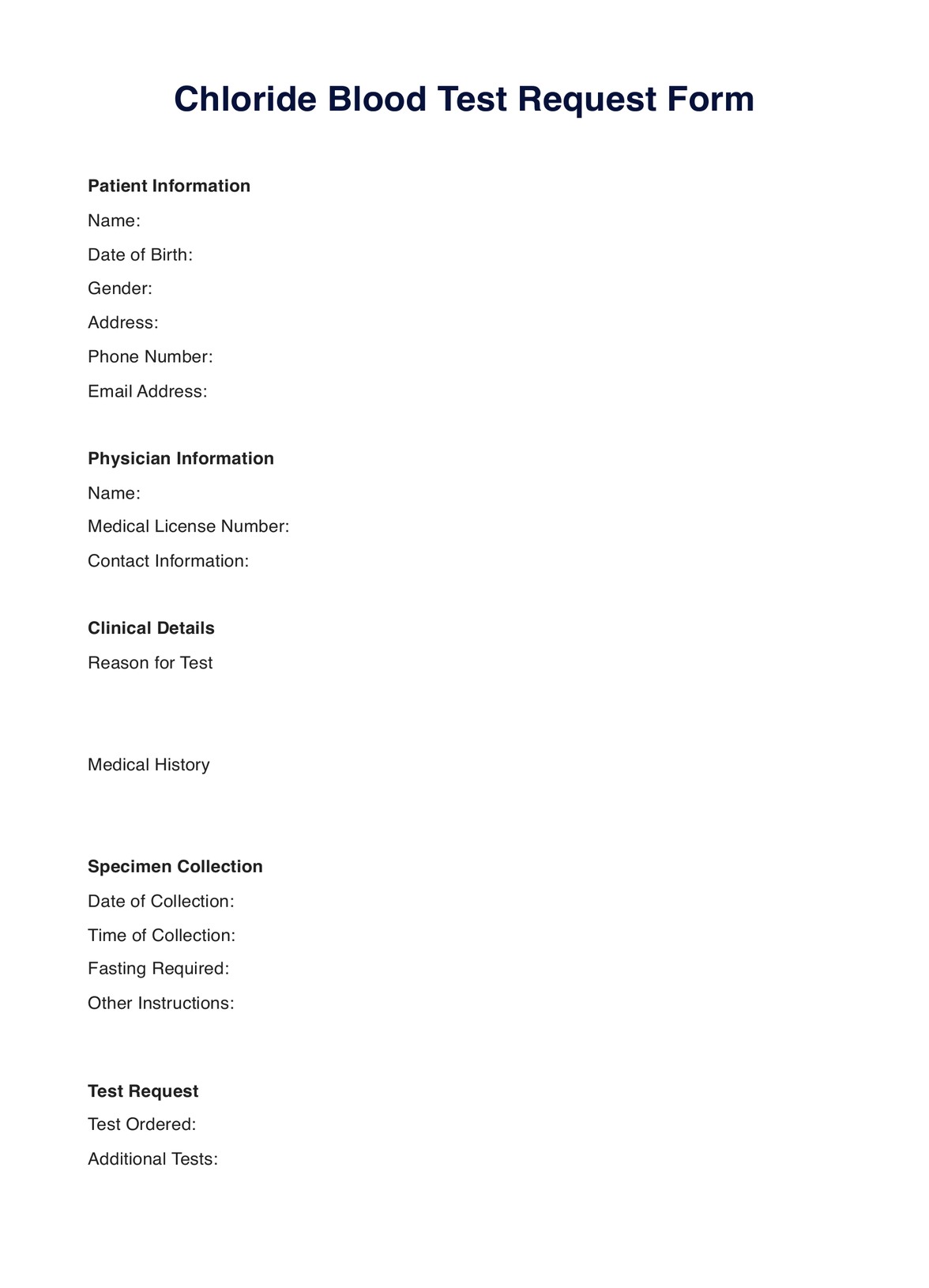Healthcare providers, such as doctors or nurses, typically request Chloride Blood Tests for patients.

Chloride Blood
Discover the significance of Chloride Blood Test results. Learn about uses, interpretation, and more�??your guide to Chloride Blood Testing.
Use Template
Chloride Blood Template
Commonly asked questions
Chloride Blood Tests diagnose electrolyte imbalances, acid-base disorders, and kidney issues and monitor certain medical conditions.
A blood sample is collected from a patient's vein and then sent to a laboratory for analysis. Results help in diagnosing and managing health conditions.
EHR and practice management software
Get started for free
*No credit card required
Free
$0/usd
Unlimited clients
Telehealth
1GB of storage
Client portal text
Automated billing and online payments











